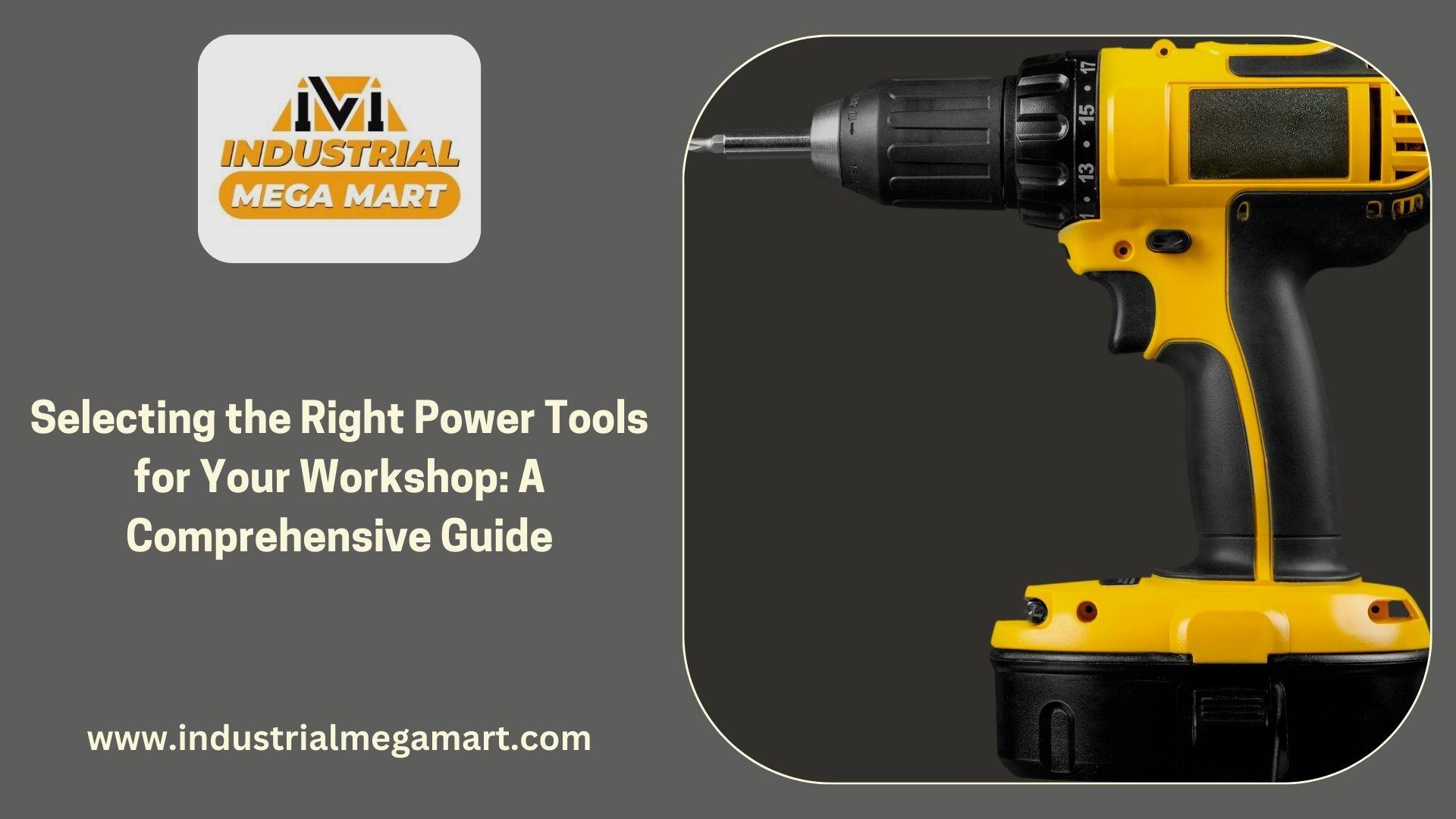Selecting suitable power tools for your workshop continues as an essential requirement to establish both secure and efficient project work. People who work professionally along with beginners doing DIY projects require understanding what tool choices match their specific needs. A detailed description in the guide helps you make decisions when you build your workshop tool collection.
Assessing Your Workshop Requirements

Before investing in shop power tools, it's essential to evaluate the nature and scope of your projects. Determine whether your focus is on woodworking, metalworking, construction, or a combination of these disciplines, as each requires specialized tools. Consider the frequency of tool usage; for regular, intensive tasks, industrial-grade tools are advisable, while occasional projects may only necessitate consumer-grade options. Additionally, ensure your workspace can accommodate the tools you plan to acquire, taking into account space, ventilation, and accessibility.
Essential Power Tools for Your Workshop
Based on common workshop activities, certain tools are fundamental. A cordless drill/driver is indispensable for drilling holes and driving screws; opt for models with adjustable speed settings, ergonomic design, and reliable battery life. A circular saw is essential for executing straight cuts in various materials; look for saws with adjustable cutting depths and bevel capacities for enhanced versatility. For cutting curves and intricate shapes, a jigsaw with variable speed settings and orbital action is ideal. A random orbital sander is crucial for smoothing surfaces and removing finishes; choose sanders with efficient dust collection systems to maintain a clean workspace. An angle grinder is versatile for grinding, cutting, and polishing metal and masonry; ensure it has safety features like adjustable guards and anti-kickback mechanisms. Lastly, a table saw is vital for making precise straight and rip cuts; prioritize models with safety features such as riving knives and blade guards, especially if your workshop has sufficient space.
Key Factors in Selecting Power Tools
When choosing power tools, consider the power source. Corded tools provide continuous power, suitable for prolonged tasks, while cordless power tools offer portability; ensure you have spare batteries to avoid interruptions. Ergonomics are also important; tools should have comfortable grips and balanced weight to minimize fatigue during extended use. Safety features are paramount; look for tools equipped with automatic brakes, safety locks, and protective guards to enhance user safety. Brand reputation matters; invest in reputable brands known for durability and reliability. Research and compare offerings, focusing on features, battery life (for cordless models), and ergonomic design. Additionally, ensure the manufacturer provides a solid warranty and accessible customer support for peace of mind.
Maintenance and Spare Parts
Proper maintenance is vital for the longevity and performance of your power tools. Access to quality spare parts ensures minimal downtime. Stocking essential industrial supplies like drill bits, blades, and safety gear enhances workshop efficiency and preparedness.
Conclusion
Selecting proper workshop power tools depends on evaluating project requirements with essential tool knowledge and power supply evaluation and ergonomic design along with safety considerations. Spare parts quality enables tool longevity by providing effective maintenance through regular servicing. Using proper assessments leads to creating a workshop environment that facilitates efficiency together with safety and matches your particular requirements.
Company Name — Industrial Mega Mart
Contact no — +91–9818376733
Email id — industrialmegamart@gmail.com
Address — 42/36. Site4 Sahibabad, Industrial Area Ghaziabad, Uttar Pradesh, India